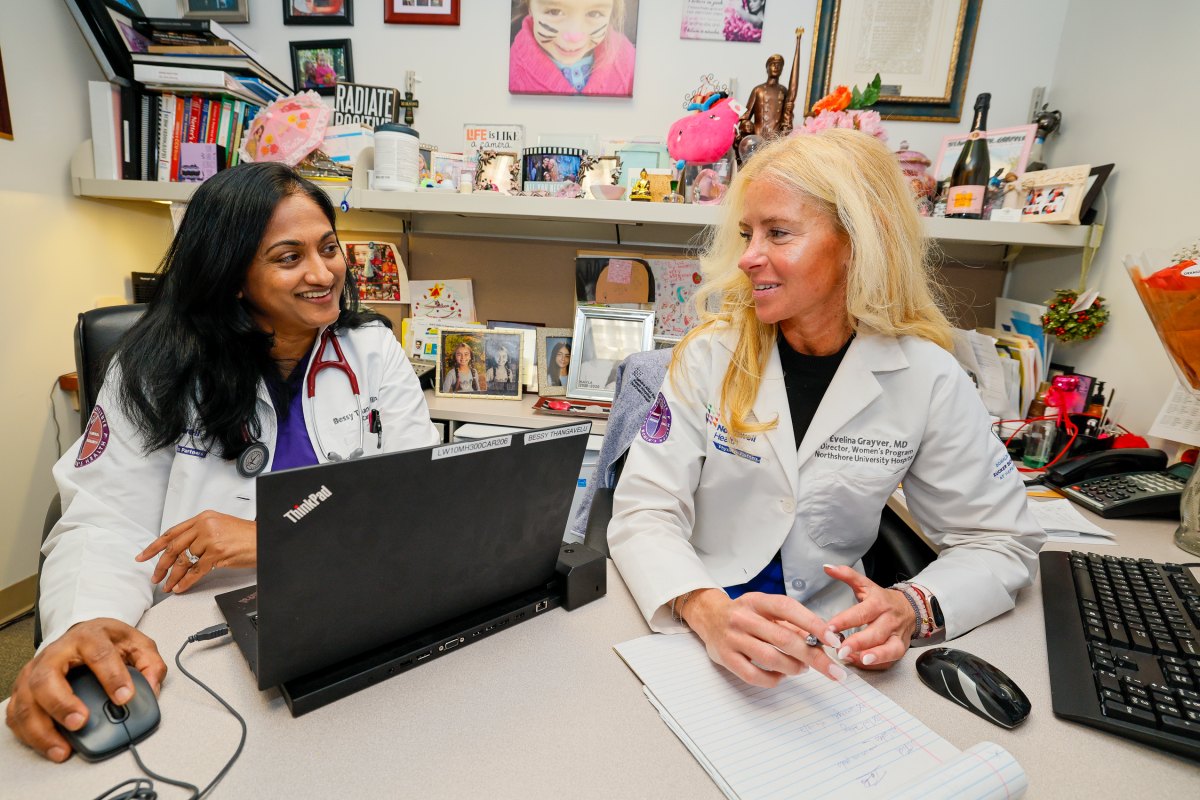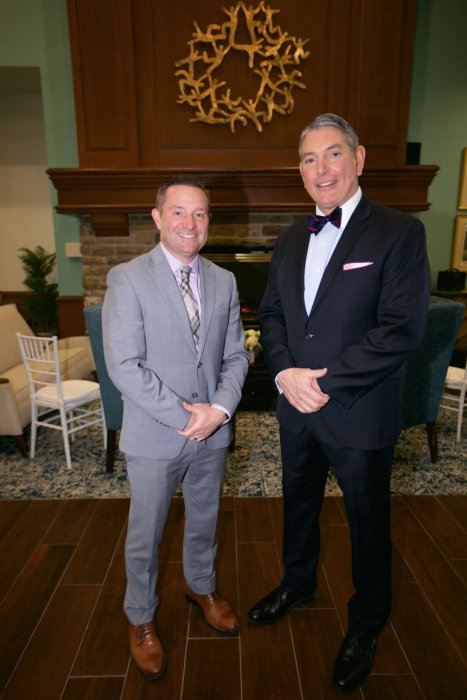Heart health and cardiovascular diseases have become synonymous with men’s health, but Dr. Evelina Grayver, director of Northwell Health’s Women’s Heart Program, is flipping that script.
“We are not just tiny men,” Grayver said of women. “We are completely different.”
One of the biggest challenges Grayver is working against is stigma.
Imagine this: You’re watching a movie and a man grabs his chest with a pained look on his face. The audience’s immediate thought is he’s suffering a heart attack.
But now imagine it’s a woman. Grayver said this is now typically perceived as an anxiety attack instead.
But Grayver said women experience the same level of risk, if not more, of cardiovascular disease compared to men yet often do not seek medical care for it before developing symptoms.
The stigma is also compounded by the late inclusion of women in cardiac research, Grayver said.
The month of February is recognized for women’s heart health, with the American Heart Association hosting National Wear Red Day on Feb. 7 to raise awareness.
Grayver said cardiovascular disease kills more women than all forms of cancer combined, yet a majority of women fail to identify it as a health threat.
Heart health is especially important for pregnant women and those looking to conceive. Grayver said less than 50% of women going into pregnancy have good heart health.
She said this is especially alarming as the United States has one of the highest maternal mortality rates in the world. About a third of those deaths are attributed to cardiovascular disease, Grayver said.
“And that’s a really scary fact,” she said.
Grayver previously served as director of Northwell’s Coronary Intensive Care Unit, where she worked with the healthcare system’s sickest cardiac patients.
These patients included those recovering from a massive heart attack, fatal arrhythmias and heart failure.
But among these patients was what Grayver called an “astonishing” number of female patients. This piqued her interest in women’s heart health.
“What I realized is the fact that the majority of them, not all of them, but the majority of them really had a significant amount of nontraditional cardiovascular risk factors,” Grayver said. “And that’s what really got me incredibly interested in women’s heart disease, simply because of gathering an understanding of what really was causing a lot of women to have heart disease.”
Traditional cardiovascular risk factors that Grayver listed are diabetes, hypertension, high cholesterol, low exercise levels, smoking and family histories. However, Grayver said many of the women in the intensive care unit did not have these factors.
Women have specific risk factors for cardiovascular diseases, Grayver said, specifically pertaining to pregnancy and autoimmune disorders that post a higher risk for women.
Grayver was in the cardiac ICU until the onset of the pandemic where she was thrust into combatting the COVID-19 virus. For six months, Grayver was leading the COVID-19 intensive care units.
But after those six months, Grayver was burnt out and needed a change.
So she pivoted and launched Northwell’s cardio obstetrics program.
The cardio obstetrics program is one of the fastest growing for Northwell, Grayver said, receiving an average of 56 new patient referrals a week.
The program works with women with cardiac issues or risks who are pregnant or seeking to conceive.
Grayver said less than half of women who become pregnant do not have optimal heart health, and may also be exposed to adverse pregnancy outcomes that could further affect their heart health for the remainder of their life.
Grayver’s office is based on the first floor, with the cardiac intensive care unit on the fourth. She said she wants patients, especially women, to see her on the first floor for preventative care before they have to see her on the fourth floor.
“Meaning, I wish the fact that women took the initiative to see a cardiologist before they started having issues,” Grayver said. “And that is probably one of the most difficult things for a lot of patients, period, but women specifically.”
Grayver said women’s heart health starts with educating themselves on the risks and carries through to educating medical providers so women do not always have to advocate for their heart health to be taken seriously.
She advised that women not wait until symptoms arise to see a cardiologist, suggesting they have their heart health checked starting in their 20s.































